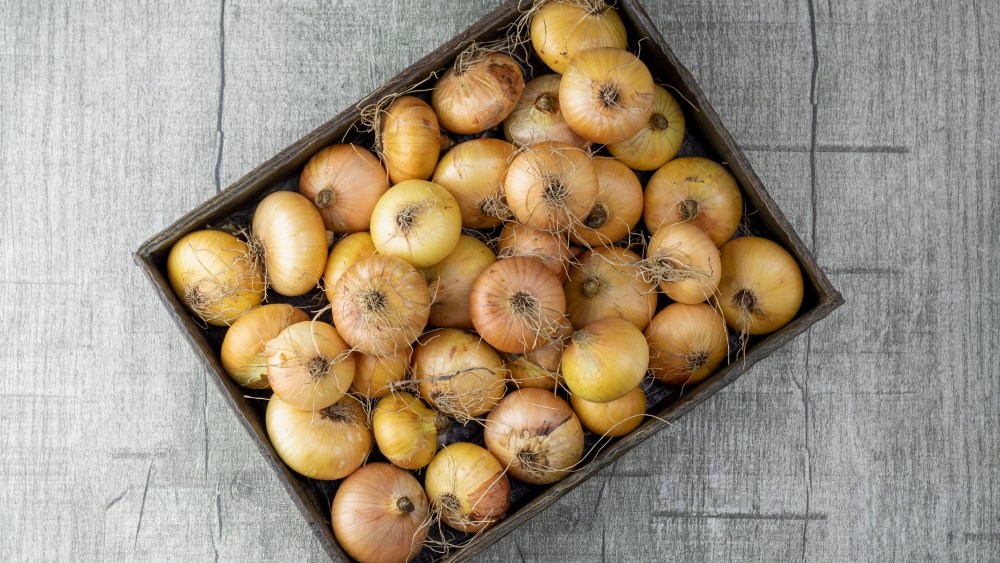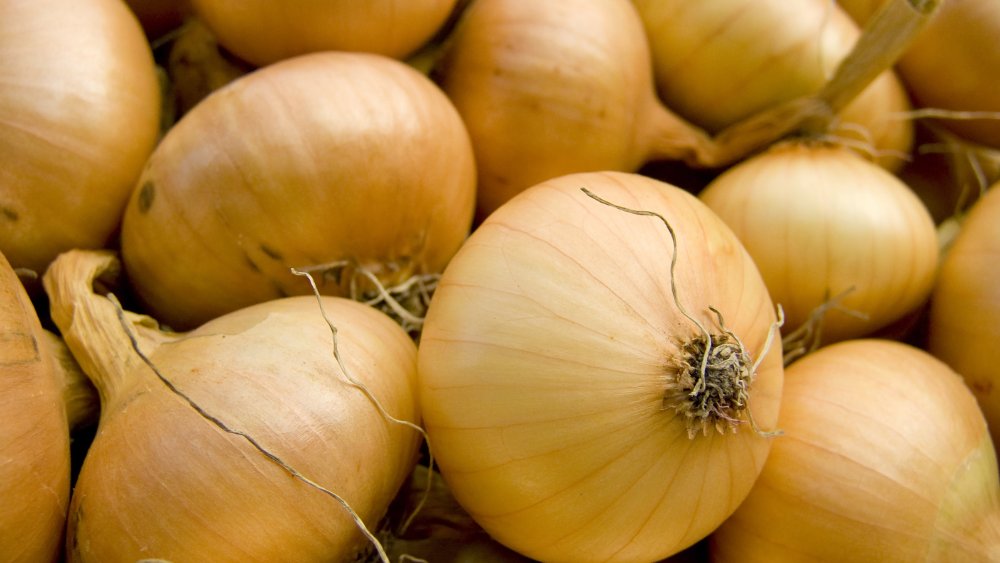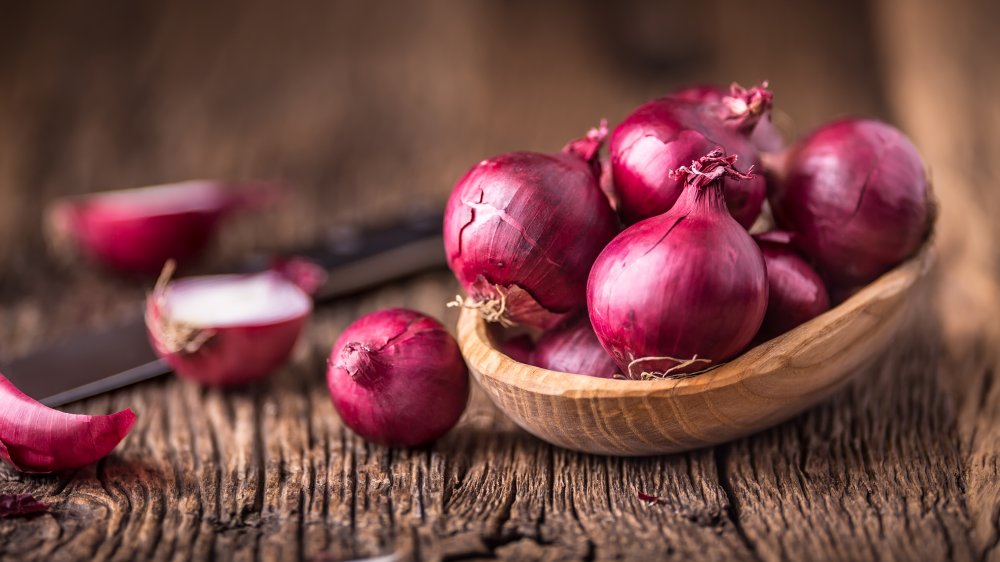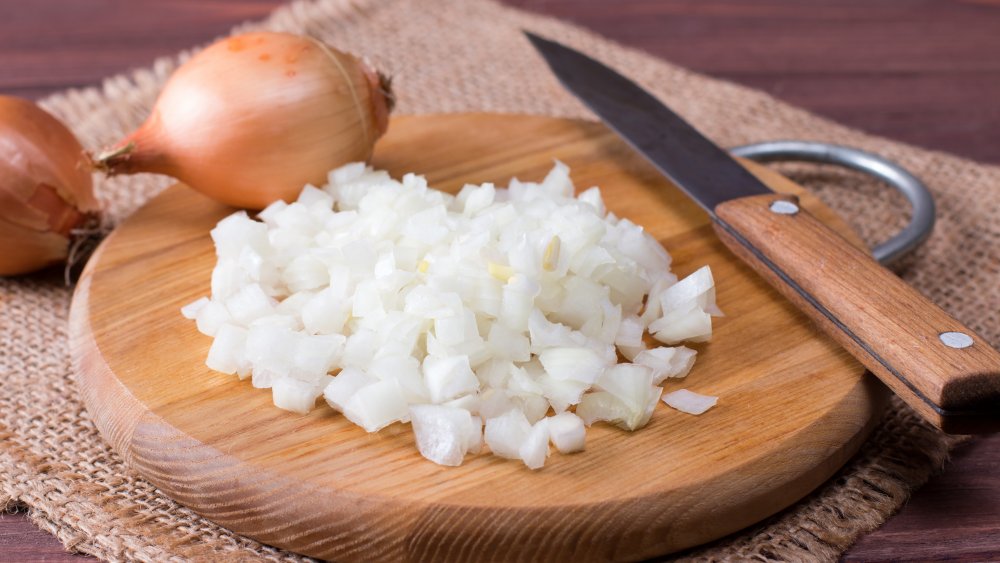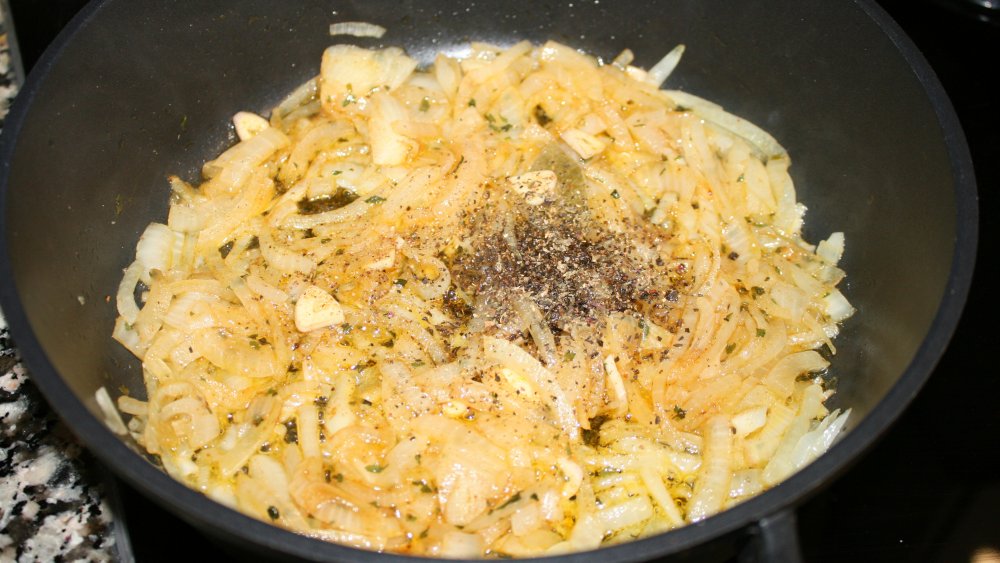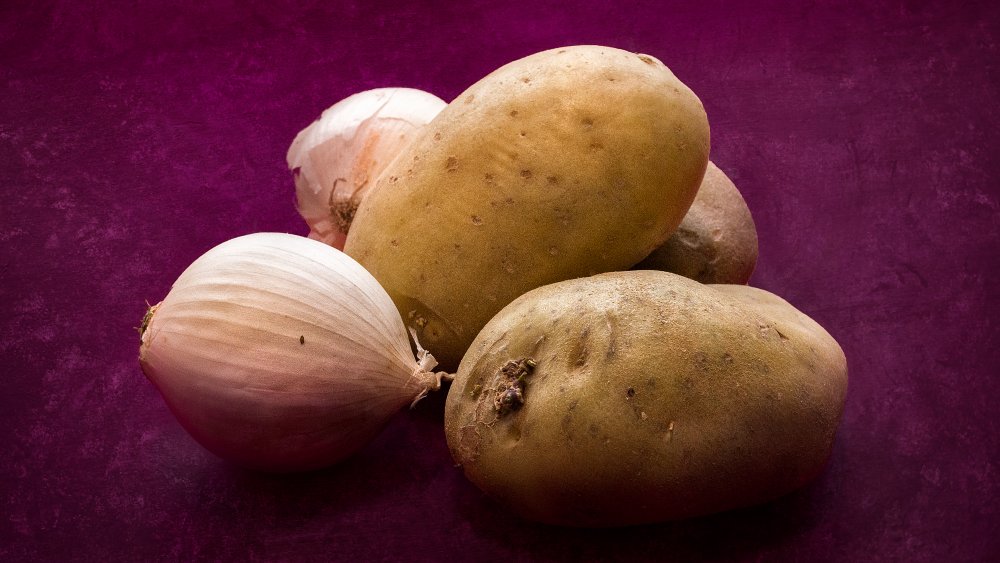You've Been Storing Onions Wrong Your Entire Life
Just how do you store your onions? Do you keep them on the kitchen counter, or do you prefer to stick them in the pantry, out of sight (and smell)? Or perhaps you actually put them in the vegetable bin in your fridge. Wherever you choose to keep your onions, there's a good chance you're doing it all wrong, at least with some of the onions you buy.
Onions come in two varieties — sweet ones like Walla Walla and Vidalia (via The Kitchn), and dry bulb varieties, which are those basic yellow, white, and red onions that are widely available in two- or three-pound bags at the supermarket. Each of these different types of onions has its own specific storage need.
How to store sweet onions
Sweet onions, which typically ripen in early summer, have a very high moisture content. The best way to preserve these onions is to store them in the refrigerator. The National Onion Council (a rather pungent, yet knowledgeable organization) recommends that you wrap each onion you're storing in its own paper towel to absorb any excess moisture before you place it in your vegetable bin (via The Spruce Eats).
You will still need to use all of your sweet onions within a few weeks, as otherwise they might get moldy and will then only be fit for the garbage can or compost bin.
How to store dry bulb onions
These late summer/fall-harvested onions are, as their name implies, less moist than sweet onions, and, as such, can be stored for months if you do it correctly. The best place to store them in is a cool, dry spot with a temperature ideally around 40 to 45 degrees, perhaps a garage or a basement. Also, they should not be stored in plastic bags, although mesh is okay.
If you really want an easy way to preserve those onions, though, here's a tip from The Spruce Eats involving an old, but clean, pair of pantyhose. First, inspect the onions for soft spots, mold, or sprouting — don't try to store onions with any of these. Instead, toss them, or cut out the bad spots and use them right away. If the onions are OK, though, cut off the legs from the pantyhose and drop an onion down into each leg. Knot, then add another onion, continuing until the legs are full or you run out of onions.
Hang up the onion hose, then simply cut a slit into one of the tied-off sections each time you need to access an onion (and make sure you're cutting them right when you use them). You can add new onions via these same slits, so the same pair of pantyhose can be used over and over for all of your onion-storing needs.
Storing onions in the freezer
You can't really freeze whole onions without having them turn into a yucky, mushy mess. If you're willing to get out the goggles, turn on the fan, or take whatever other precautions you need so you don't cry your eyes out while chopping, it is quite possible to slice or dice both the sweet and dry bulb varieties of onion and then freeze them for later use.
Chopped onions can last for up to six months in the freezer if properly stored in airtight containers. Once thawed, however, they will be somewhat limp and watery, so they really can't be used in place of fresh onions. If you use them in soups, stews, or other cooked dishes, though, no-one will ever know the difference (via Healthline).
Storing cooked onions
Yet another method which will allow you to preserve as many onions as you like for later use involves cooking the onions first before you store them. Peel and chop all of the onions you wish to use, trying for a nice, even uniform slice so they cook evenly.
Saute the onions in a little oil or butter until translucent — if you're preparing a large amount, you may need to fry them in several smaller batches. Once the cooked onions have cooled, seal them in Ziploc baggies or resealable containers within a few hours. If you leave them out too long, they may begin breeding bacteria. You can keep cooked onions in your refrigerator for five days, but if you freeze them they should last for three months.
Never store your onions near your potatoes
Whether you're storing your onions in the fridge, pantry, or pantyhose, the one place you should make sure they are not is anywhere near your potatoes. Reluctant Gourmet explains that raw potatoes release moisture, which can accelerate the onions' rate of spoilage.
This, of course, only applies to these vegetables in their uncooked states. Once potatoes and onions have been married in the frying pan, they settle down quite nicely together, so you can go ahead and fry up a nice batch of onion-y hash browns, potato pancakes, or latkes and refrigerate or freeze them to enjoy at a later time.
